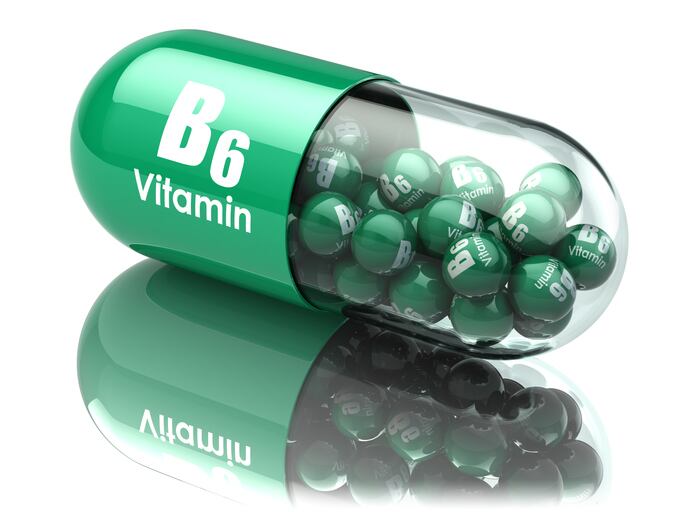Many published research papers and clinical trials conducted during the pandemic studied the role of certain nutrients such as vitamin C and D as well as minerals like zinc and magnesium on improving recovery or reducing severity among COVID-19 patients.
However, there was little attention paid to vitamin B6 in the treatment of COVID-19.
Published in the Frontiers in Nutrition journal, first author Thanutchaporn Kumrungsee, who is assistant professor at Hiroshima University, Japan said: “Recently, many scientists have published papers regarding the role of diets and nutrients in the protection against COVID-19. However, very few scientists are paying attention to the important role of vitamin B6.”
There is growing evidence that vitamin B6 exerts a protective effect against chronic diseases such as cardiovascular diseases (CVD), diabetes and its deficiency has been associated with lower immune function and higher susceptibility to viral infection.
COVID-19 and complications
This is significant as recent studies suggest that COVID-19 patients are more likely to have hypertension, CVD, and diabetes.
For example, in China, of 138 patients, 46% had a pre-existing chronic disease, including hypertension (31%), CVD (15%), and diabetes (10%).
In Italy, of 1,043 patients, 68% had chronic diseases, and hypertension was the most common comorbidity (49%), followed by CVD (21%) and diabetes (17%).
In the United States, of 7,162 cases, 38% had chronic diseases, with the top three being diabetes (10%), chronic lung disease (9.2%), and CVD (9.0%).
In Thailand, among the 54 patients who succumbed to the virus, 56% had underlying diseases, and the top three diseases were diabetes (30%), hypertension (17%), kidney disease (13%), and CVD (6%).
Vitamin B6 evidence
Kumrungsee told NutraIngredients-Asia: “Among these disorders associated with COVID-19, we believe CVD, especially thrombosis (blood clotting) and cytokine storm (hyperinflammation) may be closely linked to lethal and severity of COVID-19. Among the nutrients and food factors, vitamin B6 (PLP) is typical anti-thrombosis and anti-inflammation nutrient.”
Existing evidence on vitamin B6 showed that its supplementation could lower blood pressure in hypertensive patients, reducing the risk of CVD and stroke.
Studies have also demonstrated vitamin B6 supplementation on reducing the incidence of diabetes and its complications.
For pneumonia, mice fed a vitamin B6-deficient diet were more susceptible to infection than control mice.
Kumrungsee said: “It is clear that a low number of lymphocytes (white blood cells) with hyperinflammation are common in COVID-19 patients.
“Vitamin B6 could possibly suppress hyperinflammation, by reducing the production of inflammatory modulators, limiting virus spread and cytokine storm.”
Thus, normal or adequate serum levels of vitamin B6 is important to maintain adequate levels of white blood cells to suppress oxidative stress associated with virus infection. Oxidative stress is the defence mechanism of cells to kill infected microbes.
Call for more research
According to the researchers who wrote the opinion article, there are currently no ongoing clinical trials studying the role of vitamin B6 on COVID-19 patients. “Clinical studies in COVID-19 patients are urgently needed to confirm these possibilities.”
The recommended dose of vitamin B6 for a healthy adult is around 1.4 mg/day.
“At the current stage, it is too early to make any suggestion of vitamin B6 dosages given to the patients. More studies are needed,” Kumrungsee said.
Researchers postulate that 5 to 10 mg/day of vitamin B6 by supplementation may be appropriate for general protection against COVID-19. They stressed that more than 100mg/day is unsafe with toxic effects.
They recommend getting vitamin B6 from food sources like fish, whole grains, and banana as well as dietary supplements as a low cost and low risk option.
Kumrungsee said the timing of giving vitamin B6 supplementation to patients is another important factor.
“For example, it might be better to give vitamin B6 before virus infection, at the early stage of the infection, after the cytokine storm phase, or at the recovery state.”
“Our work on this paper raises the possibility that vitamin B6 may play a role in the protection of COVID-19, especially for those who have low vitamin B6 status. It is of great interest to examine if vitamin B6 exerts protective against novel types of virus infection and pneumonia which will be encountered in future,” she added.
Source: Frontiers in Nutrition
https://doi.org/10.3389/fnut.2020.562051
“Potential Role of Vitamin B6 in Ameliorating the Severity of COVID-19 and Its Complications”
Authors: Thanutchaporn Kumrungsee, et al.

